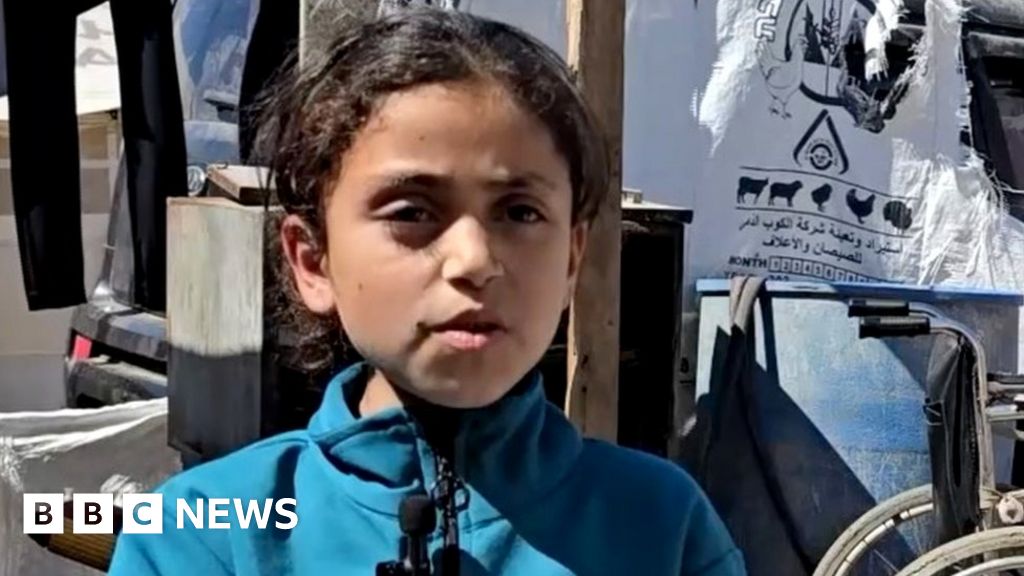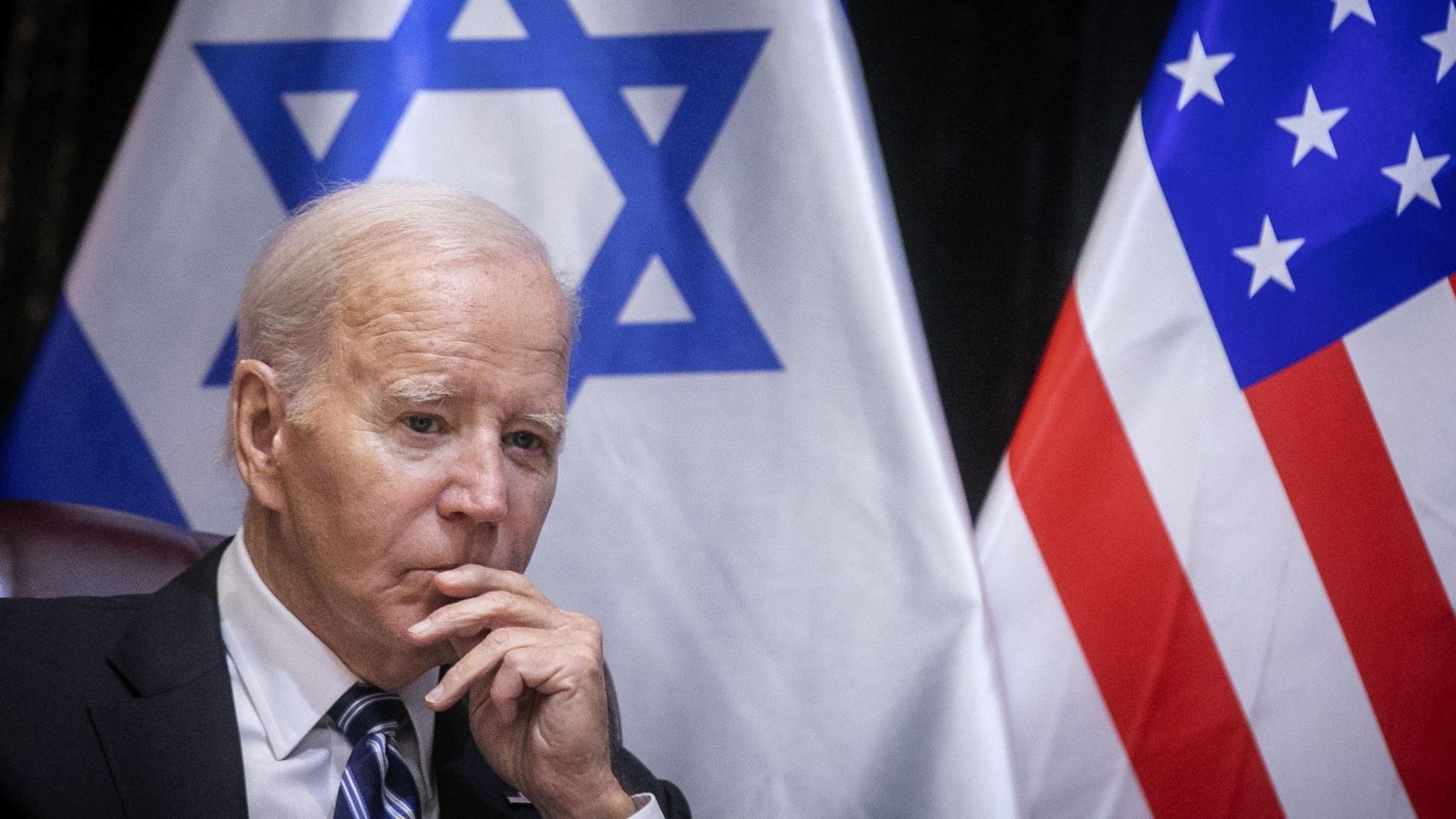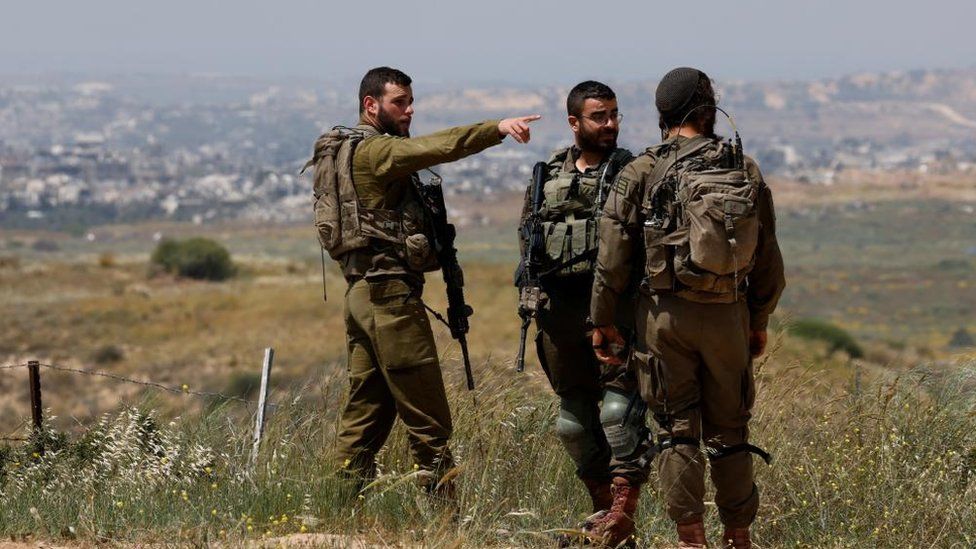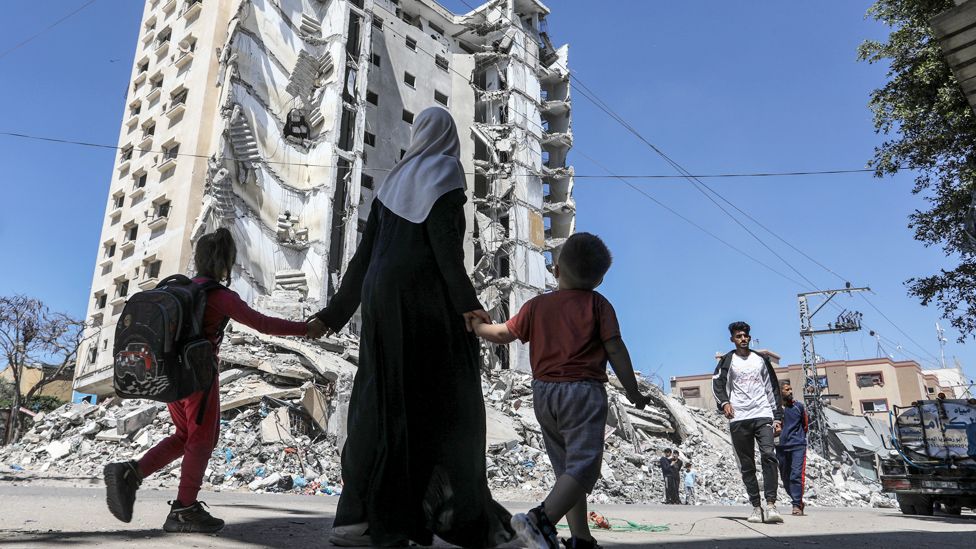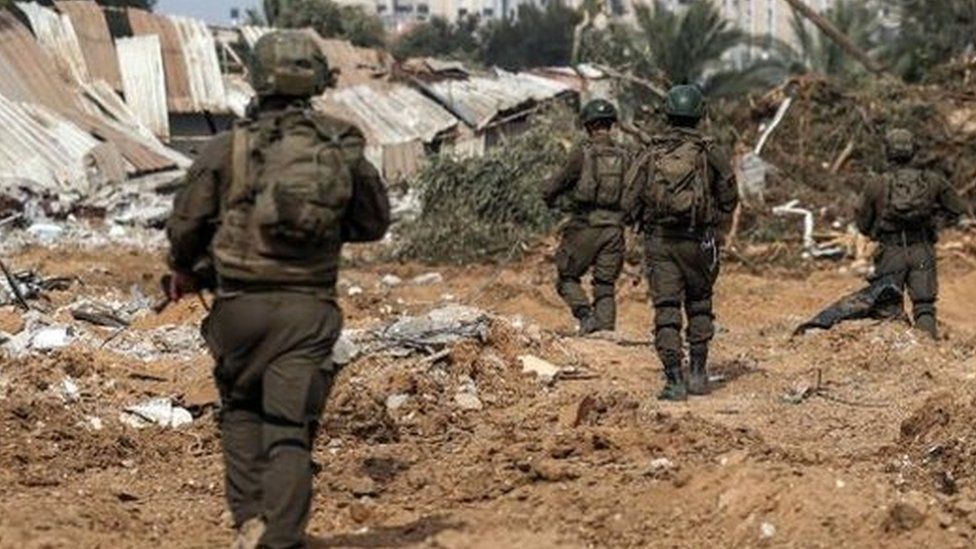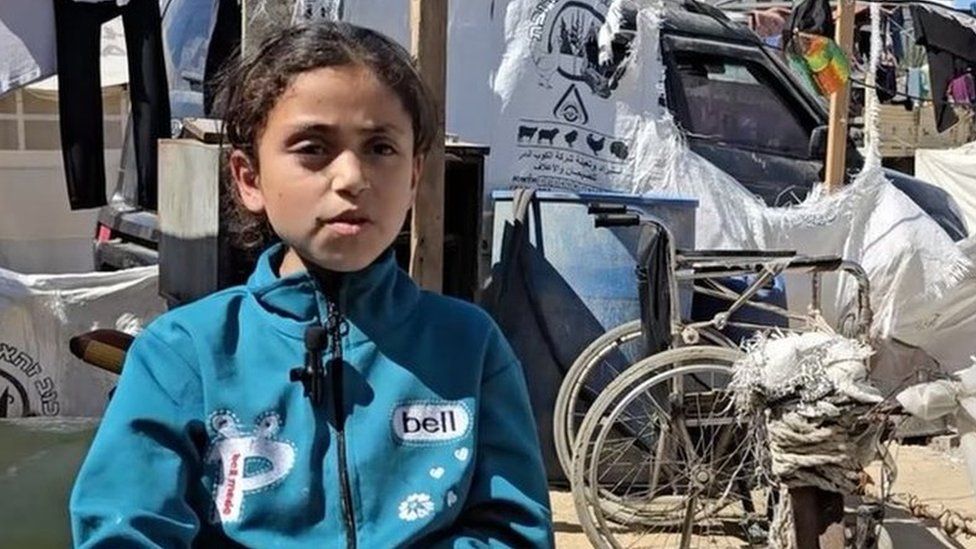
“We miss the joyful atmosphere of Eid. We do not feel alive at all.”
“On Eid last year, we played, celebrated and rejoiced together,” recalled Tala Abu Amr, a seven-year-old girl living in a camp for displaced Palestinians in Rafah, in the southern Gaza Strip.
“But this Eid, we miss the taste of happiness… There are no toys and no friends to play with. They’re all dead.”
Tala was one of a number of children who spoke to BBC Arabic’s Gaza Lifeline radio programme about how they and other members of their families were struggling to celebrate the end of the Islamic holy month of Ramadan, as the devastating war between Israel and Hamas continues for a seventh month.
Eid al-Fitr is usually a period of great celebration for Muslims after a month of fasting, with families and friends coming together and sharing large meals. It is also common for children to receive either money or gifts from their elders.
But this year, many families have been torn apart by the conflict, with more than 33,400 people killed in Gaza – the majority of them women and children – according to the territory’s Hamas-run health ministry.
An estimated 1.7 million people – half of them children – have also been forced to flee their homes and 1.1 million are facing catastrophic hunger, having exhausted their food supplies and coping capacities, the UN says.
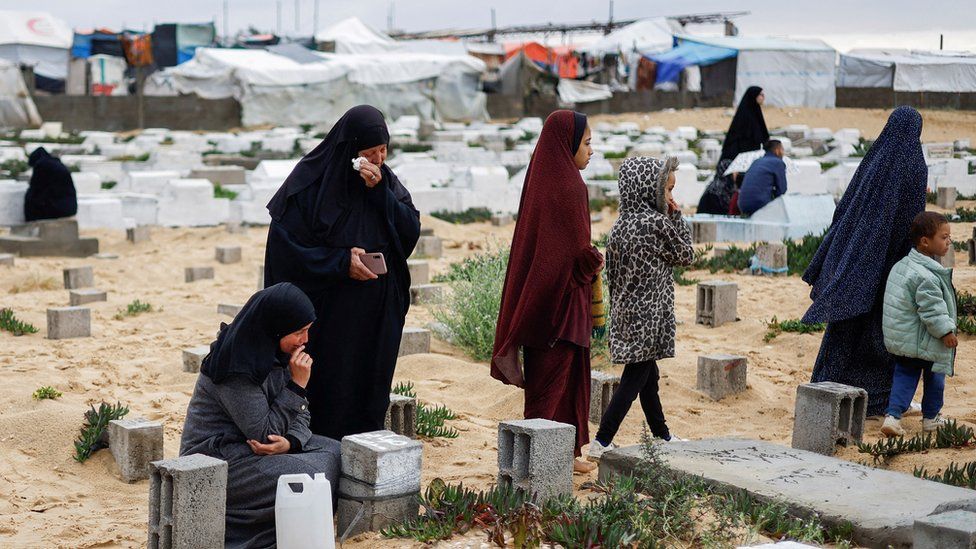
The war has cast such a pall over Gaza that “We are not fine” has become the official Eid al-Fitr greeting among residents and on social media platforms.
On the eve of the festival, streets across the territory would usually be filled with the sounds of people chanting “takbirs”, expressing their gratitude to God, while markets would be bustling with shoppers buying celebratory food, including sweets filled with dates and various types of chocolates.
This year, however, the streets were filled only with pain and sadness.
“We used to stay up all night, purchase sweets and new clothes for the children, and pray at the Grand Mosque. Unfortunately, this year we are living in a tent without the basic necessities of life,” Mohammed al-Barbari, a 47-year-old father of six from Gaza City who has fled to Rafah, told the BBC.
Sarah Amer, an 11-year-old girl from Gaza City’s Shejaiya neighbourhood, said she would usually go to the amusement park during the festival or be invited to parties by her aunts and cousins.
“This is a holiday of war. How can we rejoice and celebrate when there are people being killed, prisoners, and wounded?” she asked.
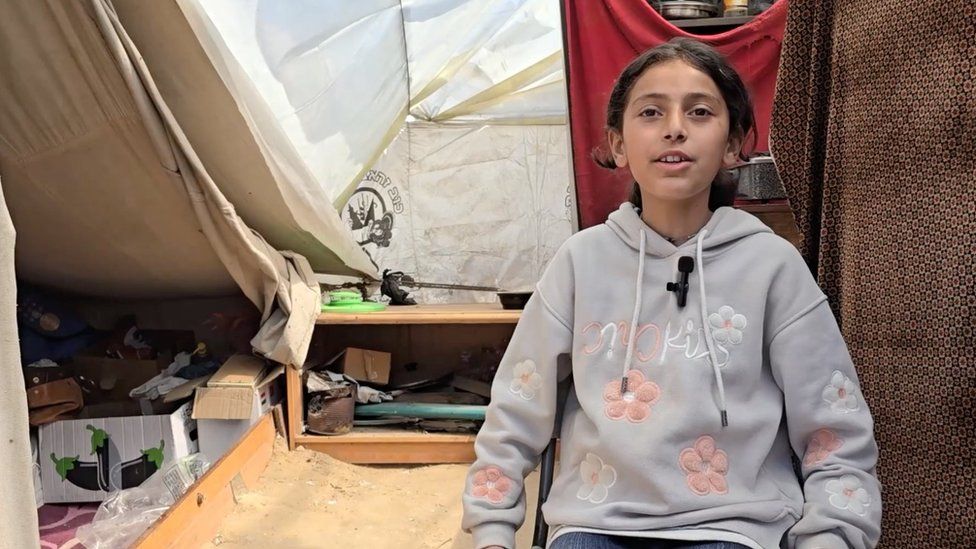
“My friends… are missing now and I do not know where they are,” she added. “I miss those moments when I would meet and play with them, celebrate and chat and sing together.”
“I asked my mum to get us dolls to play with. My mum responded by saying: ‘A lot of children like you lost their parents, they have nothing, they lost everything. Let’s be considerate of them.'”
Khalil Abu Hassanein, a 13-year-old boy from the Sheikh Radwan area of Gaza City who is sheltering at a hospital north of Rafah, said: “We used to celebrate Eid with our loved ones. But now all our loved ones have died and there are no new clothes to buy, no cookies to eat and no drinks to have.”
“This Eid has no taste because of the bodies of people… that we see.”
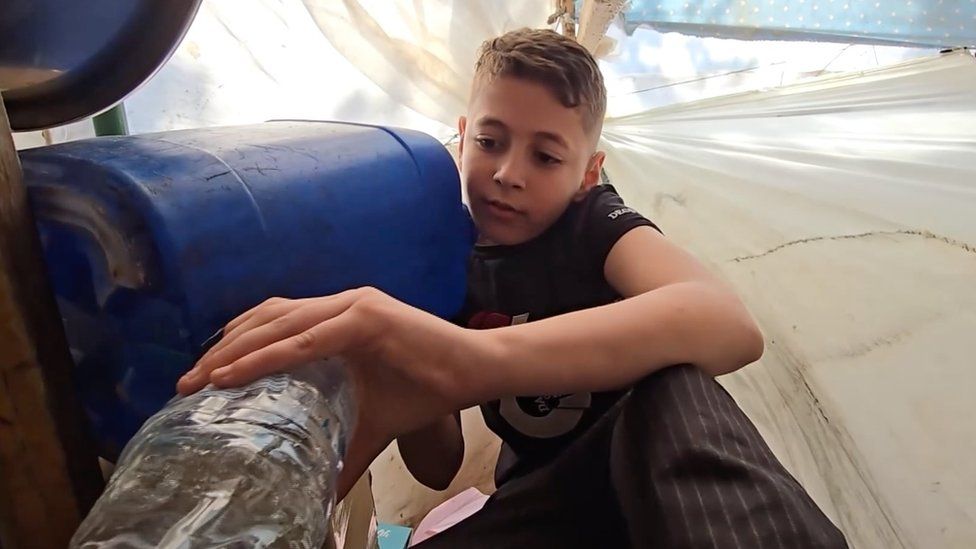
Fedaa Murjan, who works for the independent Palestinian Centre for Human Rights, is unable to celebrate Eid al-Fitr because she is mourning her eight-year-old daughter, Habiba.
She said Habiba was killed in an Israeli strike on their home in Gaza City on 13 October – only six days after the war was triggered by Hamas’s attacks on southern Israel, in which about 1,200 people – mostly civilians – were killed and 253 others were taken hostage.
“For Eid, we used to gather, we used to wear the best clothes we had. We used to have the best chocolate. They were days of happiness and joy for everybody in Gaza. But unfortunately, this Eid is very different from every other Eid before,” she told the BBC from Rafah.
“This Eid, [I’m] not the Fedaa Murjan who used to be in every Eid. I’m a defeated, sad mother who has been suffering for six months because of the loss of my only daughter.”
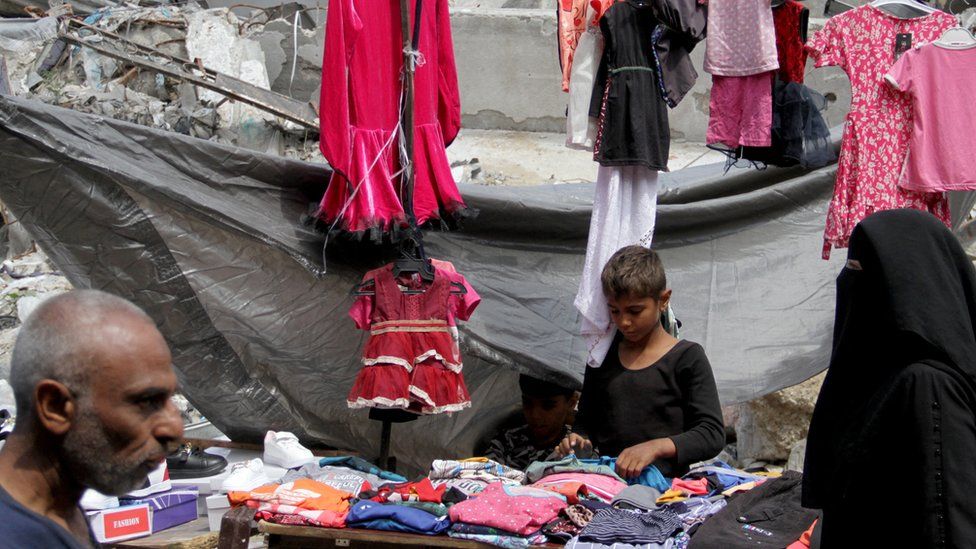
At al-Aqsa Martyrs hospital in the central town of Deir al-Balah, Nidal Abdeh was filmed as he cradled the body of his young son, who he said had been killed in an Israeli air strike along with his wife and their two other children.
“Today is the first day of Eid. Our children have the right to have a happy life, a decent life,” Nidal told Reuters news agency. “[Israel’s] planes, its barbarism and arrogance, killed our children.”
The hospital’s mortuary was also filled with the shrouded bodies of 14 people, who health officials said were killed in a strike on Nuseirat refugee camp.
There was no immediate comment from the Israeli military. However, it put out a statement on Wednesday that said its forces were “continuing to operate in the central Gaza Strip and killed a number of terrorists over the past day”. It added that aircraft had “struck dozens of terror targets” across Gaza.
This video can not be played
To play this video you need to enable JavaScript in your browser.
One way that many Palestinians in Gaza were able to mark Eid al-Fitr was to attend prayer services on Wednesday morning.
In Rafah, where a million people are sheltering, dozens gathered on a street outside the ruins of al-Farouk mosque, which was destroyed in February.
Meanwhile, Haroun al-Medallal told Gaza Lifeline that some of the women at his camp in the city had made cookies in an attempt “to put a smile on the faces” of the orphaned children there.
“Despite the pain, destruction, displacement and continuous shelling by the Israeli army, we are a life-loving people,” he said.
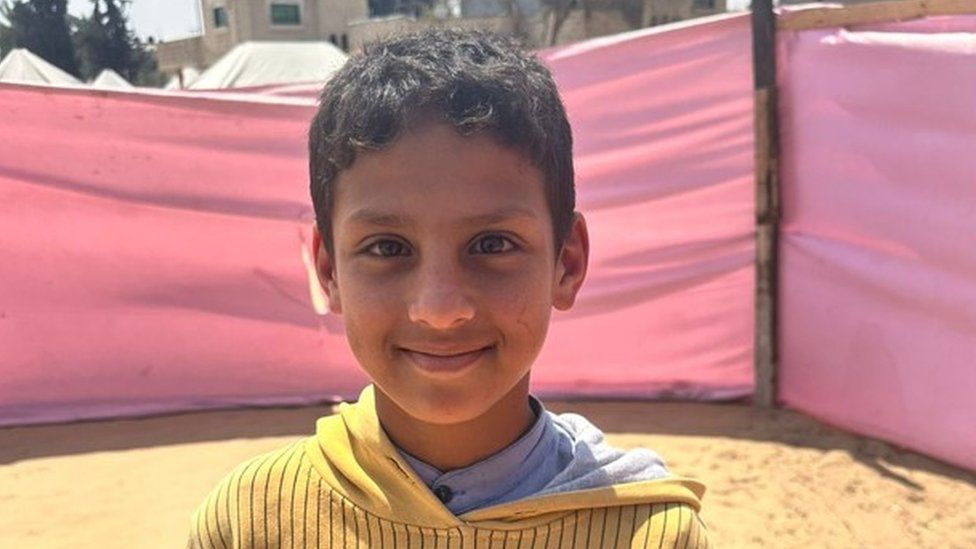
Mohammed Abu Amer said he was praying for a ceasefire, as Hamas considers a proposal from mediators in Cairo for a six-week pause in the fighting that would reportedly include the release of 40 of the hostages it is still holding.
“We hope that joy prevails during the days of Eid, the children rejoice, and this ordeal and war ends,” he added.
Several children in Rafah also said they were trying to stay positive.
“Despite the war and the fear, I am determined to enjoy Eid like other children in the world,” said Nabeel Samy al-Saroura, 10. “We will celebrate and rejoice.”
